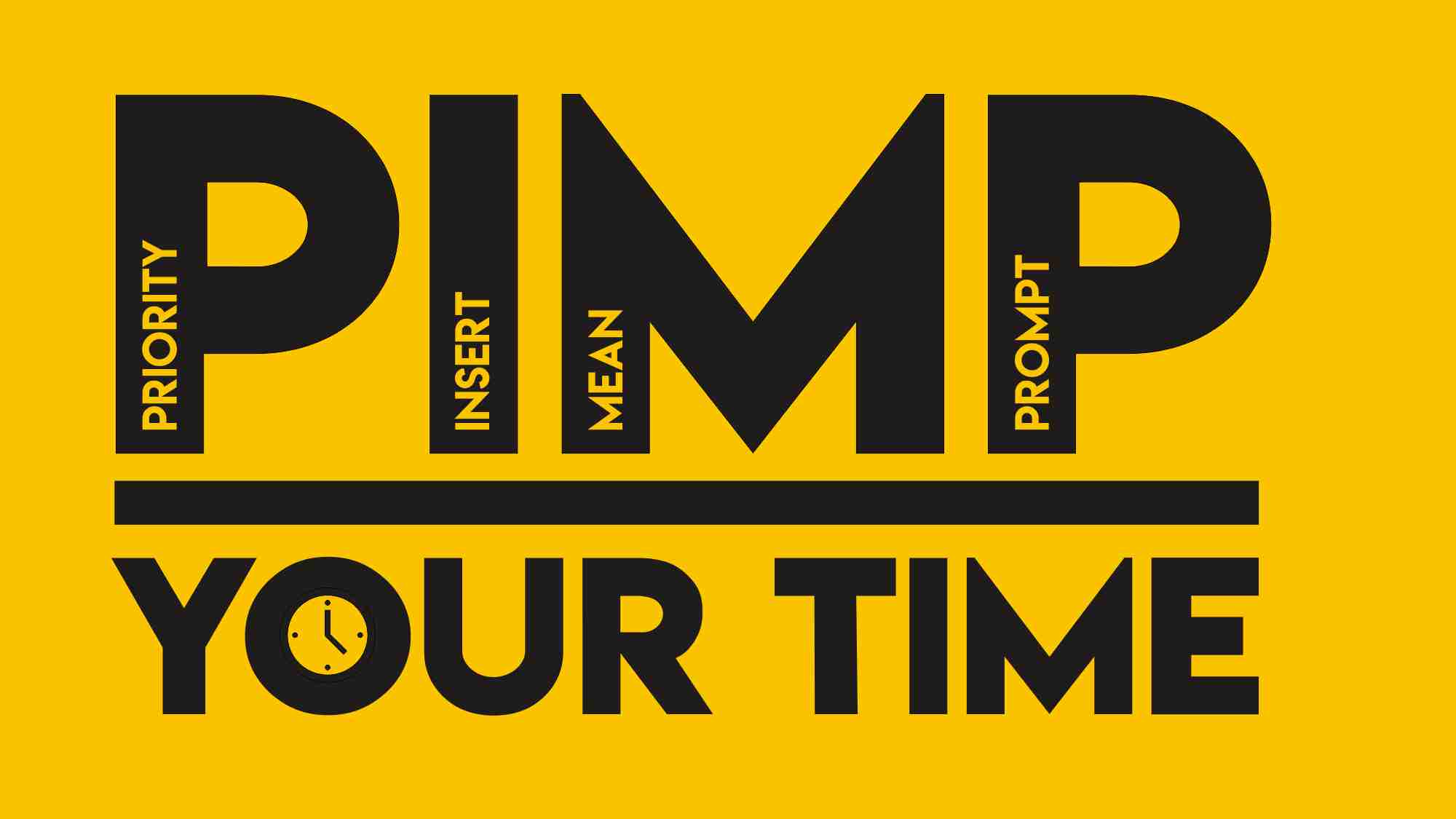What did you really want to do this week and what’s got in the way so far? Has your time been hijacked by corridor kidnappers, distractions, meetings, routine admin, curveballs and (the bane of most our lives) endless emails? Here’s my solution to smash through this ‘organisational drag’ that can take up a good 20% of our week. Budget your time to your tasks with my PIMP process and feel the joy of getting some real work done. Priority. What’s the one thing you must get done? Identify your most important task. Then estimate how much time it will take. Most people don’t know how long it takes to complete their core job role. Remember Parkinson’s Law? Work expands to fill the time available. If we allow too long we faff around and procrastinate. If we underestimate the time we miss deadlines. That stresses out people who are waiting for the work downstream. Time tracking is a crucial part of resource management but most of us are vague about how long it actually takes to do core tasks. If your handover included any time guideline for doing your job then you are very lucky; thank HR immediately. Insert. Stick the task in your calendar. It’s not enough to intend to do the work. You have to reserve the time too. Calendars should be full of tasks not meetings!! Block out a slot in your calendar and also the new location if you need to move to get it done without distraction. Check in with the people most likely to sling curveballs at you (“can you just…”) to see if they need anything from you and maybe arrange to check in again with them after your time slot. It’s your choice if you tell them when you won’t be available and why. You can disappear for an hour or two without the sky falling in. Mean. Commit to doing the task. When the time comes to get on with it, you’ll need to push back on the usual culprits who want you to do something else for them instead of getting on with your own priorities. You might also feel a bit mean about it, because (ridiculously) it feels selfish to put your own work ahead of pleasing everyone else. If people need you urgently during that time then that’s invariably down to their disorganisation and their expectation (set by you) that you will drop everything to help them at the last minute. Train them to work in a more organised, planned way. This can be done diplomatically. “I’ve noticed that quite often you ask me for data at short notice, maybe we could check in quickly every morning to see what you’ve got coming up, so I can take more time to prepare properly for you at a time that works for both of us.” Sounds reasonable to me. Prompt. Fix a trigger to start PIMP time. This is the habit that makes all the difference. Discipline yourself to have a clear point to stop what you are working on, bang on time, and switch automatically to the priority task in your schedule. The prompt could be an alarm, or after an event, like straight after a meeting. There will always be small stuff to do; leave it. Plan to do it when you finish your PIMP time. Do not get distracted by emails or chat, stick to the plan. This is where good PAs come in: they’ll enforce the boundaries with you. Move from your desk if you can, or at least shut down notifications, hide your phone and start. It can take up to fifteen minutes to really concentrate, but once you are in that flow state you’ll feel great. Really great actually! Hyper-concentrating releases the pleasure chemicals dopamine, serotonin, endorphins, oxytocin, norepinephrine and anandamide. Legal highs at work plus you are getting your real work done during work hours. How hard can it be! Ideally you’d plan a week ahead, putting one task in the diary for each day. If that’s a stretch, then do this each morning. About 90 minutes PIMP time a day will make an enormous difference to your productivity and stress levels. Try it for a week and see how good it feels. Will you let me know how you get on? |
07968 424650
zena@zenaeverett.com

